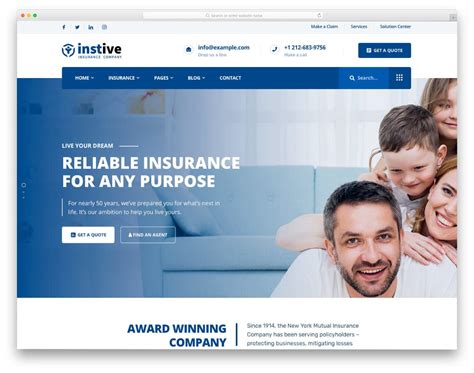Universal Healthcare Compared To Insurance Companies

Exploring the Differences and Impacts: Universal Healthcare vs. Private Insurance

The debate surrounding healthcare systems is a global conversation, with countries adopting various approaches to ensure the well-being of their citizens. Two predominant models are universal healthcare, often advocated for its equitable access, and private insurance-based systems, praised for their flexibility and market dynamics. This article delves into these models, exploring their features, benefits, and the real-world implications they have on healthcare delivery and patient experiences.
Universal Healthcare: A Comprehensive Approach

Universal healthcare, as the name suggests, aims to provide healthcare services to all citizens, regardless of their income, employment status, or pre-existing medical conditions. This model is characterized by government-funded or subsidized health coverage, ensuring that financial constraints do not become barriers to accessing necessary medical treatments.
Key Features of Universal Healthcare
- Equitable Access: Universal healthcare systems prioritize equal opportunity for healthcare services, ensuring that everyone has the same rights to medical attention.
- Government Oversight: These systems are often regulated and managed by the government, which sets standards and ensures compliance.
- Comprehensive Coverage: Universal healthcare typically includes a wide range of services, from primary care to specialized treatments, with an emphasis on preventative care and public health initiatives.
For instance, countries like the United Kingdom, with its National Health Service (NHS), exemplify universal healthcare. The NHS provides free at the point of use healthcare services, funded through general taxation. This system ensures that no one is denied treatment due to financial limitations, promoting a healthier population overall.
| Country | Universal Healthcare System |
|---|---|
| United Kingdom | National Health Service (NHS) |
| Canada | Canadian Medicare |
| Australia | Medicare Australia |

Benefits and Real-World Impact
Universal healthcare systems have been successful in improving overall population health and reducing health disparities. By ensuring access to necessary treatments, these systems can effectively manage chronic conditions and promote preventative care, leading to better health outcomes.
However, funding challenges are a significant concern. With rising healthcare costs and an aging population, governments may struggle to maintain the financial viability of universal healthcare. This often leads to longer wait times for non-emergency procedures and potential limitations on certain treatments, especially those that are costly or experimental.
Private Insurance: A Market-Driven Alternative
In contrast, private insurance-based systems rely on individuals purchasing health insurance plans from private companies. These plans vary in terms of coverage, costs, and providers, allowing individuals to choose a plan that best suits their needs and financial capabilities.
Key Features of Private Insurance
- Individual Choice: Private insurance offers flexibility and customization, allowing individuals to select plans based on their specific healthcare needs and preferences.
- Market Competition: The presence of multiple insurance companies fosters competition, potentially leading to better services and more competitive pricing.
- Varied Coverage: Private insurance plans can offer comprehensive or tailored coverage, including options for specific treatments or conditions.
For example, the United States primarily operates under a private insurance system, with Medicare and Medicaid serving as government-funded safety nets for specific populations. Private insurance companies compete to offer a range of plans, from basic coverage to comprehensive, high-premium options with extensive benefits.
| Country | Private Insurance System |
|---|---|
| United States | Private Insurance with Medicare/Medicaid |
| Germany | Statutory and Private Insurance |
| Switzerland | Mandatory Private Insurance |
Benefits and Real-World Impact
Private insurance systems can provide faster access to specialized treatments and more efficient administrative processes due to the competition and customization they offer. This system also allows for individualized coverage, catering to specific health needs and preferences.
However, the lack of universal coverage can lead to healthcare disparities and financial barriers for those who cannot afford insurance or face pre-existing condition exclusions. Additionally, administrative costs can be high, impacting the overall cost of healthcare.
Comparative Analysis: Weighing the Pros and Cons
When comparing universal healthcare and private insurance systems, several key factors come into play:
- Equity vs. Individual Choice: Universal healthcare ensures equal access but may lack the customization of private insurance. Private insurance, on the other hand, offers individual choice but can lead to health disparities based on affordability.
- Cost and Funding: Universal healthcare relies on public funding, which can be challenging to sustain. Private insurance systems, while potentially more efficient in managing specific cases, often face higher administrative costs and may not cover all necessary treatments.
- Efficiency and Wait Times: While universal healthcare can lead to longer wait times, private insurance may offer faster access to certain treatments. However, this efficiency can vary based on the specific insurance plan and healthcare facility.
Ultimately, the choice between these systems depends on societal priorities and the balance between equitable access and individual choice. Each model has its strengths and weaknesses, and the ideal healthcare system may incorporate elements from both to address the diverse healthcare needs of a population.
The Future of Healthcare: A Hybrid Approach

As the global healthcare landscape evolves, hybrid models are gaining traction. These models combine elements of universal healthcare and private insurance, aiming to leverage the strengths of both systems while mitigating their respective weaknesses.
Hybrid Models in Action
Countries like Germany and Singapore have successfully implemented hybrid healthcare systems. In Germany, for instance, the system is a dual-track approach, with a statutory insurance system covering most citizens and a private insurance option for those who can afford it.
Singapore, on the other hand, has a multi-payer system with government-funded healthcare for basic needs and private insurance for those seeking additional coverage. This system ensures universal access while allowing for individualized coverage and market competition in the private sector.
Benefits of Hybrid Models
Hybrid models offer a balanced approach to healthcare, combining the equity and public health focus of universal healthcare with the individual choice and market efficiency of private insurance. These systems can address diverse healthcare needs and adapt to changing societal requirements, making them a promising direction for future healthcare reforms.
Conclusion: Navigating the Complexities of Healthcare Systems
The debate between universal healthcare and private insurance is complex, with each model presenting unique advantages and challenges. While universal healthcare promotes equity and public health, private insurance offers individual choice and market dynamics. The ideal solution may lie in hybrid models, which aim to strike a balance between these approaches.
As healthcare systems continue to evolve, it is crucial to consider the diverse needs of populations and the dynamic nature of healthcare demands. By learning from the strengths and weaknesses of different models, countries can work towards more inclusive and effective healthcare systems, ensuring the well-being of their citizens.
What is the main advantage of universal healthcare over private insurance systems?
+Universal healthcare’s primary advantage lies in its equitable access, ensuring that all citizens, regardless of their financial status, have equal rights to healthcare services. This promotes better population health and reduces health disparities.
How do private insurance systems ensure competition and quality?
+Private insurance systems foster competition among insurance companies, which can lead to better services and more competitive pricing. This competition often results in higher quality standards and efficient administrative processes.
What are the potential challenges of hybrid healthcare models?
+Hybrid models, while promising, face implementation challenges due to the complexity of balancing public and private interests. They also require strong regulatory frameworks to ensure equitable access and prevent market abuses.



